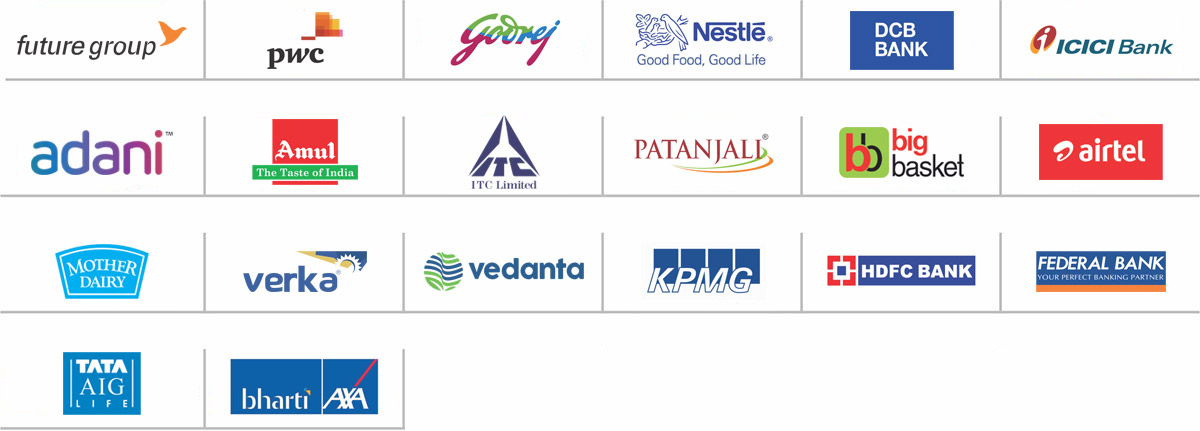* Starting in July, 2020
2-Year MBA in Rural Management refers to the study of planning, organising, directing and controlling rural areas, cooperatives, agri-business and allied fields. The curriculum is designed to make it contextual to develop rural areas through experiential learning and live projects. The concept to focus on rural development and potential through the perspective of management studies, has caught up big time and opened newer doors of job opportunities with many organisations.
PROGRAM OVERVIEW
MBA in Rural Management has created a niche and shall continue to be in demand as the hinterlands in India consist of about 650,000 villages, inhabited by about 850 million consumers of population and contributing around half of the country’s Gross Domestic Product (GDP). With increased spending capacity and changing consumption patterns in rural areas, consumer companies serve one-third of their consumers from rural India.
As per latest studies of the potential size of the market, rural India provides a large and attractive investment opportunity for blue chip companies.
- FMCG sector in rural and semi-urban India is estimated to cross US$ 20 billion by 2018 and US$ 100 billion by 2025.
- India’s per capita GDP in rural regions has grown at a Compound Annual Growth Rate (CAGR) of 6.2% since 2000.
- The Fast Moving Consumer Goods (FMCG) sector in rural and semi- urban India is estimated to cross US$ 100 billion by 2025.
- The rural FMCG market is anticipated to expand at a CAGR of 17.41% to US$ 100 billion during 2009–25.
- Rural FMCG market accounts for 40% of the overall FMCG market in India, in revenue terms Amongst the leading retailers, Dabur generates over 40-45% of its domestic revenue from rural sales. HUL rural revenue accounts for 45% of its overall sales while other companies earn 30-35% of their revenues from rural areas.
CAMPUS RECRUITMENT
Unlike in the past when the Rural Management specialists were exploring opportunities mostly in the Dairy or Agribusiness related sectors, many new areas have opened up. Specialists in Rural Management are needed in CSR wings of corporate and public sector, livelihoods focused organisations, micro-finance institutions, small finance banks. When it comes to listing out major recruiters for Rural Management graduates, we can classify them in the following categories:
- National NGOs: PRADHAN, SEWA, CARE, BAIF, Seva Mandir, Nandi Foundation etc.
- International NGOs/Funding Agencies: Bill and Melinda Gates Foundation etc.
- UN Bodies: UNDP, UNICEF, UN Women etc.
- Govt. Aided Programmes/Projects: NRLM, NRHM etc.
- Corporates with Corporate Social Responsibility Job: Mining Companies, Cement Companies etc.
- Corporates with Rural Marketing Job: Car and bike manufacturer, cement companies etc.
Job opportunities in Rural Management
Some popular job titles that are offered to our MBA graduates in Rural Management are:
- Sales/Business Development Manager
- Rural Development Officer
- Purchase/Vendor Development Manager
- Business Development Executive
- Sales Officer
- National Sales Development Manager
Some of the major companies who recruit our graduates are:

Eligibility & Fees
- The candidate should have completed the Bachelor’s Degree with minimum of 50% aggregate marks in any stream from a recognised university.
- The candidate appearing in the final year examination can apply but the candidate must have secured minimum 50% (aggregate) marks till the previous year’s examination. However, the candidate must submit his/her graduation completion certificates by September 30, 2021, failing which he/she shall be de-registered.
- Candidate having compartment in any subject will not be considered.
- Having work experience is not a requirement for admission to the program.
- Admission to the MBA program at Chitkara Business School is based on merit ranking in CAT / MAT / NMAT / XAT / CMAT Score, followed by group discussions and personal interview. Applicants who have not taken any of the above mentioned entrance exams shall have to take Chitkara University Test with group discussions and personal interview. Decision of the selection committee will be final.
Fees
| Semester I | Rs. 1,10,000 |
| ERP Fee^ | Rs. 10,000 |
| CAS^^ | Rs. 30,000 |
| Semester II | Rs. 1,50,000 |
| Semester III | Rs. 1,50,000 |
| Semester IV † | Rs. 1,50,000 |
^ERP Fee only at the time of admission
^^CAS Career Advancement Services Fee only at the time of admission
†Rs. 2,500/- towards alumni services has to be paid with the last installment
